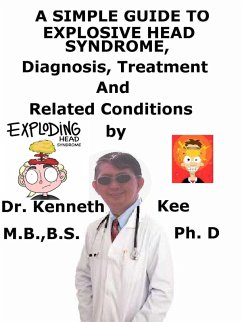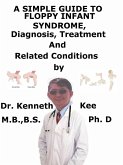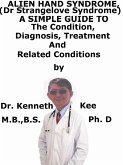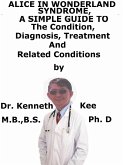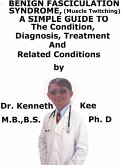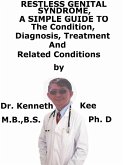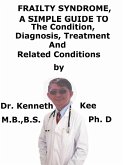This disorder was so interesting that I had to read and write about it.
Exploding head syndrome (EHS) is a form of sleep disorder in which the patient hears a loud sound or explosive crashing sound in the head.
The sound is not real and cannot be heard by someone else.
The episode normally happens suddenly either when the patient is starting to fall asleep or when the patient wakes up during the night.
Together with the loud sound, EHS can happen along with flashes of light and muscle jerks (myoclonic jerks).
Unlike its painful-sounding name, the syndrome is painless.
EHS is a parasomnia, which is an undesired episode that happens while sleeping.
It is also termed episodic cranial sensory shocks.
Exploding head syndrome is a disorder that happens during the sleep.
The most frequent symptom is hearing a loud noise when the patient falls asleep or wakes up.
The actual cause of the sensation in patients is still not known, though speculation of possible sources is minor seizures affecting the temporal lobe or sudden shifts in middle ear components.
Some doctors believe it is a neurological issue while others think it is linked to fear and anxiety.
It could also be linked to the components of the middle ear moving during the night.
People with high stress levels or a history of other sleep disruptions appear to be at a higher risk of having exploding head syndrome.
Other possible causes are stress/anxiety, impairments in calcium signaling and brainstem neuronal dysfunction.
Some current theories about causes are:
1. A brief increase in the activity of the brain's sensory neurons.
2. Damage or dysfunction in the inner ear structures.
3. Abnormal attention processing in the brain during the sleep-wake transition.
4. An aura that happens before a migraine.
5. Side effects from suddenly stopping selective serotonin reuptake inhibitors (used for treating depression) or benzodiazepines (used to treat anxiety).
An exploding head syndrome episode normally lasts less than a second.
Signs and symptoms of exploding head syndrome (EHS) are:
1. Feeling frightened or anxious after the episode.
2. Experiencing a sudden muscle jerk at the time of the episode.
3. Having difficulty falling back to sleep.
4. Waking up sweating, having a rapid heartbeat and trouble breathing.
Criteria from the ICSD-3 to help the doctor make the diagnosis are:
1. The patient wakes up suddenly to a loud noise or an explosion in the head.
2. The episode is intense and the patient feels frightened after it
3. The patient does not feel any physical pain during or after the episode.
A polysomnogram measures brain activity during sleep such as the brain waves
Exploding head syndrome normally does not need treatment.
The doctor will assure the patient that this disorder is not dangerous or a sign of any severe disease.
If needed, the doctor may choose to prescribe a medicine used to treat other disorders:
1. The anti-seizure medicine topiramate that influence neurological activity,
2. The heart disease drug (calcium channel blocker) nifedipine,
3. Tricyclic antidepressants such as amitriptyline and
4. A drug for obsessive-compulsive disorder, clomipramine.
One medicine that has been given to treat exploding head syndrome is clomipramine a tricyclic antidepressant
Non-pharmacological treatments such as relaxation, improved sleep hygiene and counseling may also help to relieve symptoms.
TABLE OF CONTENT
Introduction
Chapter 1 Exploding Head Syndrome
Chapter 2 Causes
Chapter 3 Symptoms
Chapter 4 Diagnosis
Chapter 5 Treatment
Chapter 6 Prognosis
Chapter 7 T...
Dieser Download kann aus rechtlichen Gründen nur mit Rechnungsadresse in A, B, CY, CZ, D, DK, EW, E, FIN, F, GR, H, IRL, I, LT, L, LR, M, NL, PL, P, R, S, SLO, SK ausgeliefert werden.

